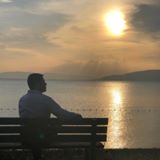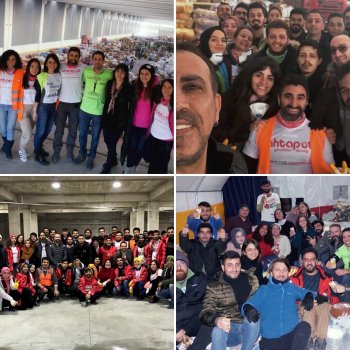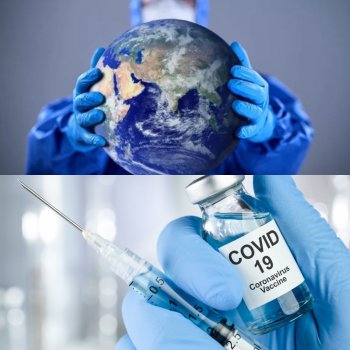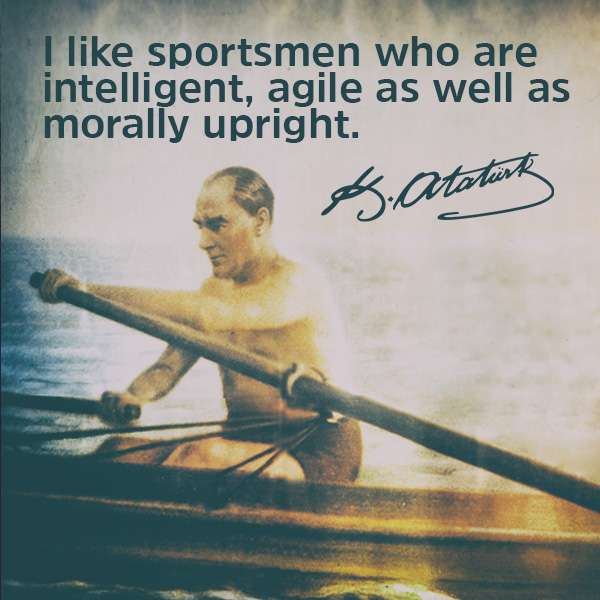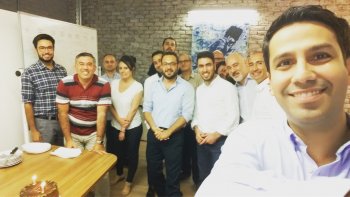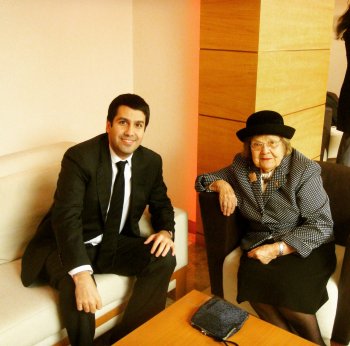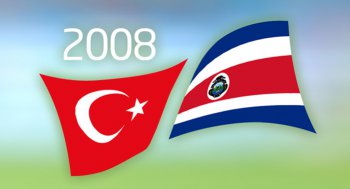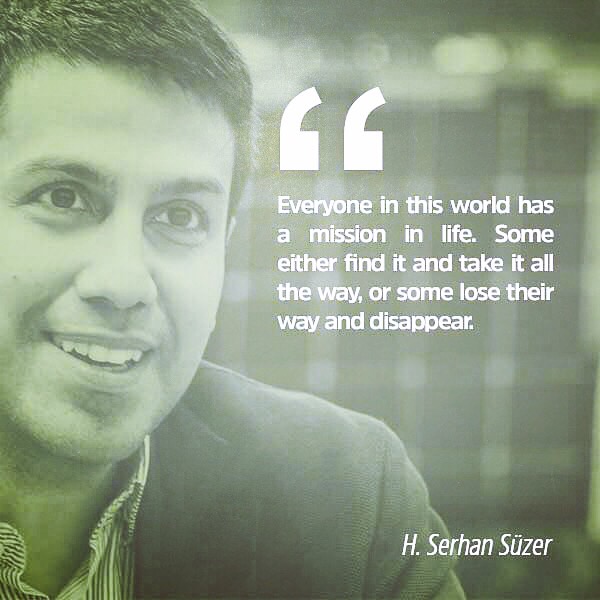Basic Needs Association - Understanding TIDER...
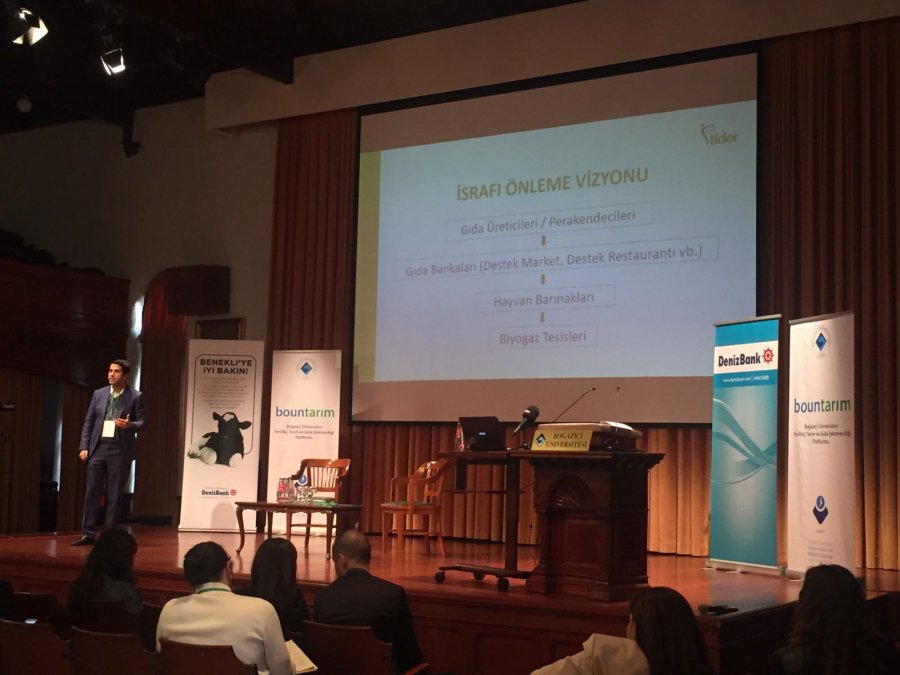
For a very long time, I didn’t have a chance to write, due to my work commitments. In this piece, I will break my writing fast and delight you all with my return. In this piece, I wanted to write about something very dear to my heart which is TIDER (Basic Needs Association) in which I am the founding director. I will be talking about TIDER from a main vision perspective. In order to understand what we are working on and trying to reach, it’s important to see it from a bigger picture…
Previously, I wrote many articles about TIDER. However, I see some people that are not too aware of this establishment, are still having trouble comprehending exactly what we are trying to do. In this article, I want to share with you TIDER’s main vision, our aims and in short, I want to share the bigger picture with you. For this reason, I want to share two events that have similar concepts to this; TUSIAD’s ‘Food Waste and Loss Strategy Road Map’ conference along with the Bogazici University’s ‘Agriculture and Food Value Chains Innovative Technology’ conference in which I presented the ‘Social Innovation Example: Innovative Value Chain Approach’ named presentation, which I will also relay the details to you in this article.
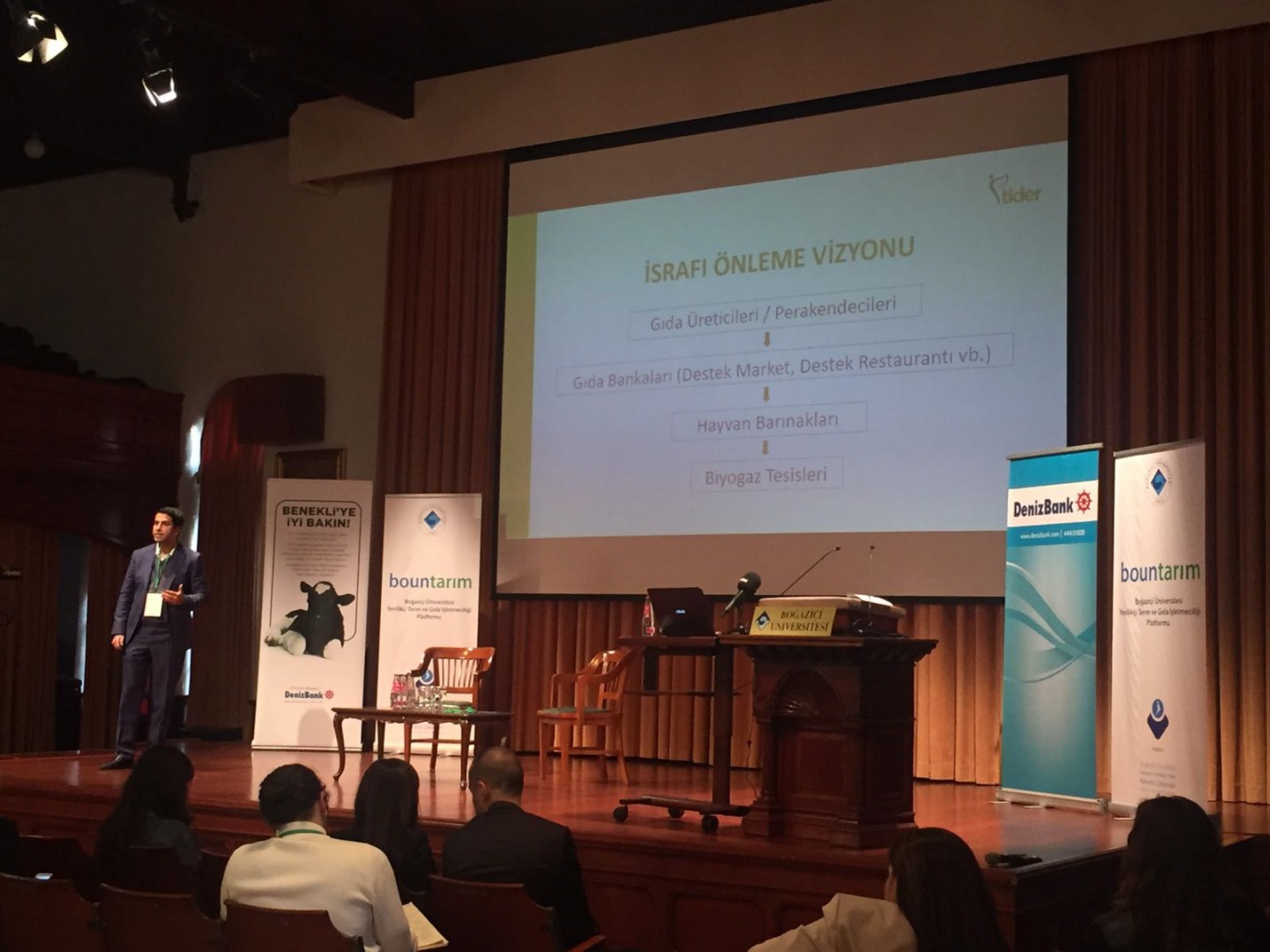
A photo taken from my Bogazici University Presentation
Firstly, I’d like to start with the main vision. TIDER has two main visions:
1. To prevent waste
2. To help enable people in need to stand on their own feet
In our waste prevention vision, first let’s identify the problem. In order to explain waste and poverty in numbers, I will share with you some figures*:
1. 1/3 of the global food production equates to 1.3 billion tons of food waste. And this is enough to feed the 868 billion hungry people over 4 times.
2. Global food waste costs up 1 trillion dollars and spreads up to 3.3 billion tons of carbon dioxide.
3. In the Turkey, the most foods that are wasted are vegetables, fruits and bread.
4. In Turkey, the rate of bread waste is 6 billion.
5. In Turkey, there are 13 billion people that are not being fed and those living under the poverty line equates to 14%.
After becoming aware of the above statistics, we can easily say that we will feed the people of poverty and those who require nourishment in our country with the foods that are continually wasted. So, how can we prevent waste? I had previously shared a piece of the model we designed: http://serhansuzer.com/en/a-single-salve-for-three-wounds-support-project-1
In this piece, I had written of how to prevent waste and the benefits we enabled and in addition, Id like to share with you the bigger picture
This is our ‘waste prevention’ vision:
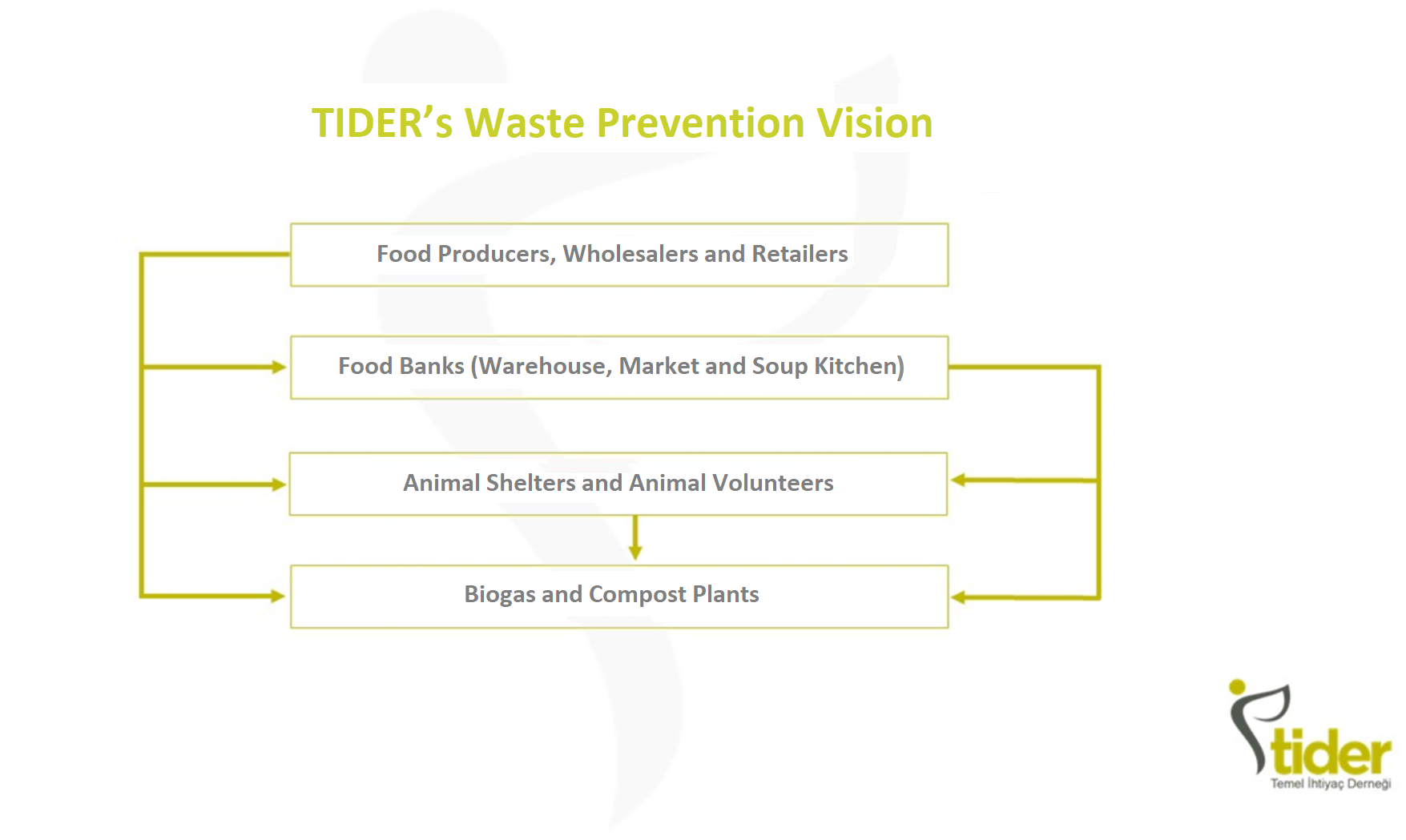
As you can see in the above table, food producers, wholesalers and retailers donate foods that humans can consume to food banks. Here, food banks appear in two formats: ‘uncooked foods’ market format which will be distributed to the people in need in the best possible way by means of a Support Market; or otherwise, the other format is the Support Markets distributing ‘cooked foods’ and in the future we are planning on developing a Support Restaurant and Food Kitchens. Goods that can’t be consumed by humans but can be consumed by animals will be donated to animal shelters either directly by food producers, wholesales or retailers, or via food banks.
Products that come out of food producers, wholesalers or retailers, from good banks or animal shelters, that animals can’t consume, will be sent to biogas plants to produce two types of energy (electricity and heat) and two types of fertiliser (wet and dry). This way, we can meet our energy requirements and also support the cycle of nature. As TIDER, we are trying to aim to initiate this picture. At the moment however, we are busy with establishing the food banking systems. Soon, we will also add the animal shelters to this equation.
Now let’s move on to the second vision which is to enable people in need to stand on their own feet…
We have developed a very effective system for this: Support Market and Support HR.
I had previously written about the benefits of the Support Market and Support HR in the below links:
Support Market article: http://serhansuzer.com/en/a-single-salve-for-three-wounds-support-project-2
Support HR article: http://serhansuzer.com/en/a-single-salve-for-three-wounds-support-project-3
In addition to these, I would like to share with you the technology we have developed in order to work as effective as we can in our Support Market and Support HR projects: Support Cloud and Support HR Platform.

As you can see on the screen picture above, on one side there are the basic needs products (food, clothing, cleaning products etc), donating producers, wholesalers, retailers and on the other side there are companies accepting donated goods which are food banks, animal shelters and biogas plants. If we need to explain how the system works: A supermarket in Adana can post 1000 baby nappies into the system. A food bank found in Ceyhan in Adana can reserve this donation and at an agreed date and time, will collect the goods with their own transportation. This way, this donation mechanism works in the most effective way, and everything is reported and brought to life with complete transparency.
The other software we developed is the Support HR Platform. Now let’s see a snippet of this platform:

On the Support HR platform, we prepared it exactly like Kariyer.net but a site for those in need. To give you an example; A person living in Karabuk can easily apply for positions in factories located in or around him. In the same way, a HR representative from a factory in Zonguldak can look at TIDER’s database and can call people in for an interview with the help of our Support HR. This way we can help speed up the process of an employer finding an employee.
I had also mentioned this previously, our Support HR model, which is a member of the Global Foodbanking Network along with many other countries, won the ’Innovation Award’ in their first ever held event. You can find the article regarding this at this link: http://serhansuzer.com/en/on-the-road-to-becoming-a-global-cso-civil-society-organisation-the-big-award-goes-to-tider
And in order to remind you of this award which honored us, I’d like to share some of the visuals with you:

We took it in our stride to spread both the Support Cloud and Support HR Platform to the whole of Turkey. We are going to do everything we can for both of the software’s to be used in all the cities of Turkey. The support from all our friends regarding this is very important.
I would like to announce now that I will write an article in the future regarding the two established software’s. Now let’s move on to TIDER’s prioritised work model. If you would like to know how you can support both our individual and corporate projects, this is the answer:
1. “Take Ownership of your City” model: There are many cities in Turkey which have a very rich and very poor population which live together. For example, our foundation built in Maltepe, is above and under the freeway, therefore, it has been separated into two. As you move closer to the sea side, you can see the increase in rich families, but as you get closer towards the top of the freeway, you will see an increase in poorer families. We are therefore, calling out to those well-off families in Maltepe ‘your neighbours within a 1-2km radius of you are constantly worried about how they will find bread that day, so here, you can step in and take the responsibility. Come and support our foundation so we can uplift and elevate your neighbours, let’s enable the welfare of your neighbourhood’. We really want to apply this method to all the cities in Turkey.
2. Ways in which you can support TIDER as an individual or as a corporation:
1. Join the volunteer program
2. Pro bono service: to provide your knowledge and expertise to our foundation. For example, if you are a lawyer, you can help provide free legal service to our foundation.
3. Individual or Corporate Goods Relief Donated Items (basic needs products)
4. Individual or Corporate Cash Donations
We also value doing business together as it’s a very big and heavy capacity to carry in the country to ensure welfare. We can only ensure this if the public, CSO’s and the private sector step up and work side by side. This can be:
1. Public Sector - CSO joint venture: The necessary ministries, district governors and councils working together
2. CSO’s joint ventures: We want to work with all the related CSO’s. We pursued this with the Adim Adim platform and successfully worked together. As we are helping provide the needs of those families in need, on the other hand, we are doing our best to help enable their elevation within the community. For example, we will help someone with ALS by redirecting them to a ALS-MNH foundation for further assistance.
3. Private Sector - CSO joint venture: We are ready to do business with any private sector company, as long as they are willing to help support our project. To date, many international and national companies in Turkey have made goods relief donations and cash donations to our foundation. They supported us in many different areas. I’d like to once again thank these companies from the bottom of my heart. You can find these companies listed below:
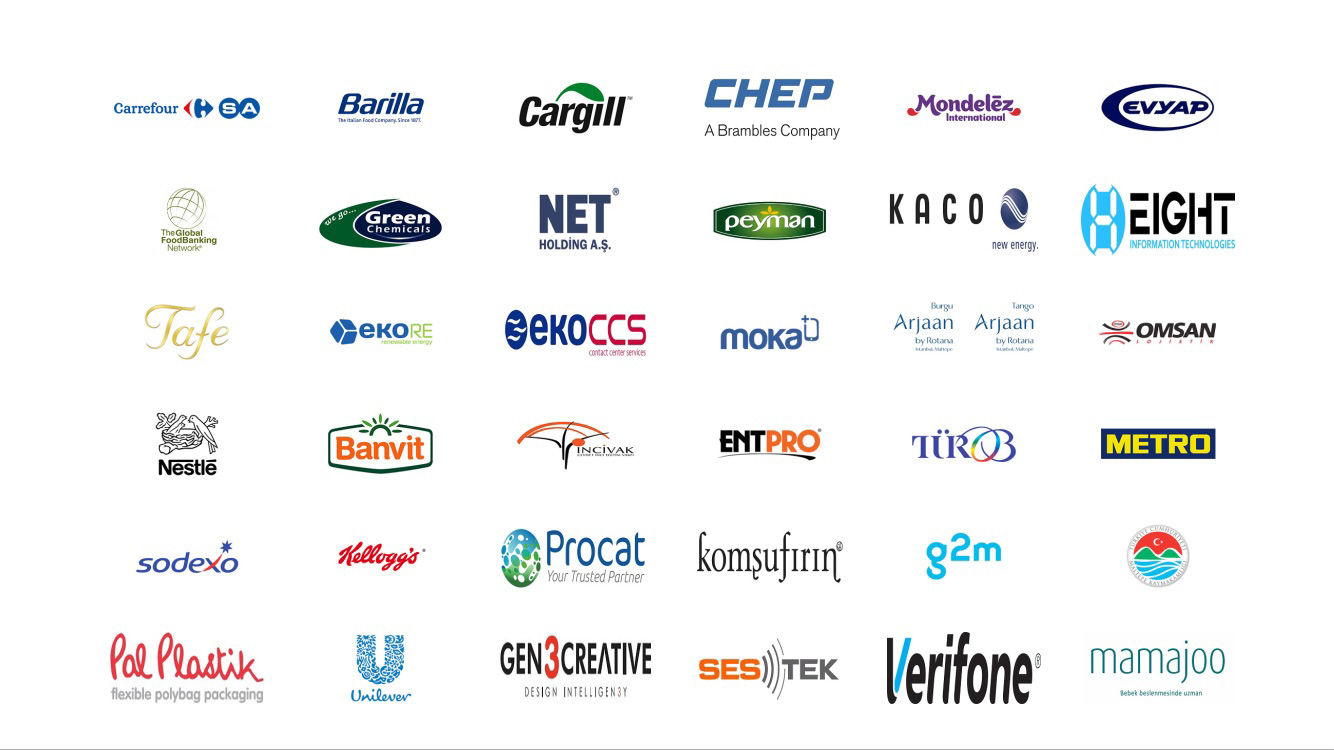
With all your support, we were able to help assist and touch the hearts of millions of people and come to where we have. Thanking you all so so much.
I’d now like to repeat the benefits we have been able to provide:
1. Preventing Waste
2. We are encouraging the private sector to make Goods Relief Donations as they can now be exempt from their tax obligations using this method
3. We are enabling donations to be made transparently over one platform
4. We are providing the basic needs for those in need
5. We are elevating and uplifting those in need
In order to achieve these, we are using the 4 principles of policy and remaining loyal to them in order to achieve the above. These principles are:
1. Impartiality
2. Transparency
3. Honesty
4. Sustainability
I hope I have been able to explain these in a way for all of you to understand.
Take care.
----------------------------------------------------------------
(*) You can find the links to the mentioned data in the article in the below links:
https://www.weforum.org/agenda/2016/04/a-roadmap-to-reducing-food-waste
http://www.fao.org/state-of-food-security-nutrition/en/
http://foodsustainability.eiu.com/
